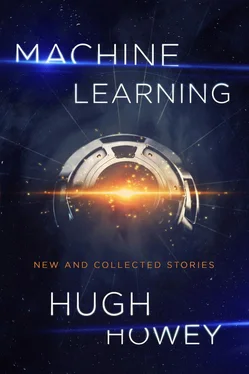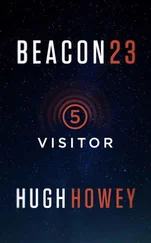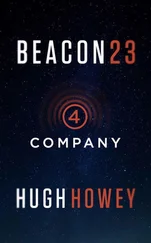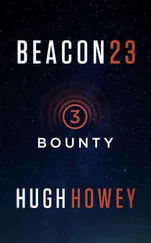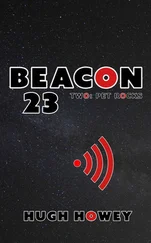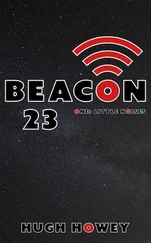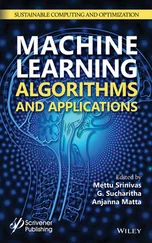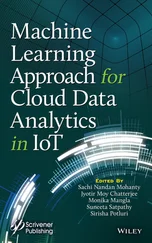The woman in 13D is screaming and thinking the same thing.
And then it happens.
8
The Coast Guard won’t let me move. The Hudson and the East River have been shut down. New York City is smoking, and I am not aware of this last fact, but the entire world is watching. Some with happy fists.
Another boat has tied up to the restaurant dock. Hours march by. The construction workers return for the lunch pails they left on the dock, and they say there was little to do in the way of help, that they had to catch the same rescue boats as everyone else. But they saw things. They tell me awful stories, things I do not want to hear. They leave boot prints of mud and ash on the docks, trailing away.
I hear my name. Turning, there is Scott on the dock across the water. A dead man, standing. My best friend, waving at me. I nearly dive in and swim across. My heart is bursting out of my chest, and for all the death I’ve seen, now is when the tears come, this sight of someone I love, very much alive.
I go to crank Prelude to drive the comical distance across this leap of water. It would take an hour to walk around. A crew member from the sailboat says to use their tender, so I do. Scott and I embrace. He tells me what happened, the choking cloud, how he had to breathe through his shirt, how he followed the stampeding others, dangled over the Hudson from a rail, dropped into a boat, saw someone else land and their leg go sickeningly sideways, didn’t know where I was, marched down the Hudson shoreline and stopped at every marina, and now here.
We look at each other for a long time. We talk on top of each other. I have to touch his arm several times to make sure he’s real.
On the dock, someone suggests we find food. And has anyone seen a TV? There are rumors about Chicago and LA. Are they right? Are more coming? The Sears Tower? The White House?
We head through the parking lot toward town, but there is a man blocking our way. Sitting astride a tractor with a big scooping bucket on the front, he yells at us for being on his property. We explain the boats, and he says we can’t tie up there, that this is his restaurant. We say there’s no room anywhere, that the Coast Guard won’t let us leave, that they’ll shoot at us if we do.
He tells us we better go fucking home and get our guns. He tells us we’re at war.
We watch as a car pulls up, a friend of his, and the man lifts the bucket of that great tractor so that this one car can come through, and then the bucket rattles back to the concrete. No one else may pass.
“Better get your fucking guns,” he yells at us, as we run off in search of food. We run, and our feet make the sound of Tralfamadorians clapping, of happy people making fists.
Stained is washing the same triangle of glass that he washed the night before. He peers in at Montana and seems to be watching her knit. Montana has snapped the antennas off the TV, much to the chagrin of Billy Pilgrim, who says this Western is his favorite show. He settles when he sees the reception does not waver. Montana finds she has to rough up the smooth metal a bit before it will hold the thread. She is taking the carpet apart and making a dress for her child. Her arms rest on her swollen belly. The thread pulls neatly from the carpet, one line at a time, back and forth, as the opposite happens in her lap. There is destruction and creation taking place all at once, connected by a single thread. The glass squeaks as Stained washes the same spot, over and over.
“Because,” he says, apropos of something, the organ overhead playing his tune-like voice.
Montana smiles. She’s not sure what question this is aimed at—not that it matters. She is content to have someone who listens. Billy doesn’t always. He just stares in the vicinity of her locket.
“I wish you wouldn’t destroy the universe,” Montana says, not for the first time. She starts a new row, really likes the way she can extend or retract these needles to make them shorter or longer, thinks TV antennas are just fine for knitting, and then looks up at Stained. “Those of us who only see in three dimensions, we would most appreciate having the universe around.”
Stained blinks and watches her. Montana peers down at the dome of her belly, this dome within a dome, this prisoner two domes deep, naked and ignorant and soon for this world. “It would be nice to have a universe for my baby,” she tells Stained. Not that this would move him, just her thinking aloud. Just talking over Billy, who is murmuring in his sleep.
“I’m not angry at you,” she tells Stained. And the squeaking and cleaning stop. “You took everything from me, but I’m not angry at you.” Another row of stitches. Montana adjusts herself in the lounger, because being pregnant requires a constant quest for some elusive comfort. She loves her baby; this is what she knows. And she never wanted one. Never would have had one back at home. Not in that life. It made hating this place difficult at times. Stained seems to be reading her mind, the way he stares at her.
“I was angry, you know,” she tells him. “For weeks and weeks, all I wanted was for all of you to die for what you did. Maybe you heard me screaming it in my head, those long speeches saying I’d get even with you, that my world would come for me, would blast you to smithereens.”
Stained watches her.
“But this is where we’re different. You see the future and refuse to change it. Where I come from, we can see the past, but we keep repeating it. That’s where we’re different. The same but different.” She nods vigorously. “I’ve never been free before, you see. Not once in my whole life. I used to make fists and hit walls, but it hurt me more than it hurt them. The people who did bad things to me, they didn’t care how angry I got. It didn’t fix a thing. So you go right on cleaning and peering in, and I’m going to—”
“He loves you, too,” Stained says.
Montana turns and peers at Billy Pilgrim, who has rolled over and has uncovered himself. She knits two and purls one. Knits two and purls one. “I know,” she says. She doesn’t say that she doesn’t really love Billy. Pities him, more like. After a long while, she remembers where the conversation had been going.
“You know what I’ve realized? Just a week ago, sitting here, miserable for my kid who will be born in this zoo of yours. I realized that I have never owned myself. Not really. I’ve thought what others wanted me to think. I’ve felt the way I was supposed to feel. I used to get angry and want to hit things, thought that would make it better, make things right.” Montana laughs. She balls up her hand. “I used to make fists like you do, that’s what I did.”
The glass before Montana has never been so clean.
“And then I realized what a blessing it is that I don’t know the future. That I don’t see like you do. Because what would I do? I’d be as numb and callous as you are. A prisoner. I’d already know how this dress comes out, and that wouldn’t make me wanna go through with it. You know?”
“It’s a boy,” Stained says.
Montana looks from her knitting to the Tralfamadorian with the red splotch on his palm. If Montana had lived a different life, she would have called this Tralf Macbeth. But that wasn’t the life given to her.
“What did you say?” she asks.
Stained blinks. Montana rubs her belly.
“Can you read his mind? It’s gonna be a boy?”
Tears blur her vision like the rainy Tralfamadorian nights streak the dome.
“If you can talk to him, tell him I love him. Tell him everything’s gonna be okay.”
Stained has gone back to cleaning. Montana wants to scream, but the thing she is angry at is in the past. The past can’t hear her. This is the thing, her great discovery. She smiles at the future. Happiness is a choice. She knits another row and loves every man who ever wronged her. More important, she loves those who will wrong her yet.
Читать дальше
